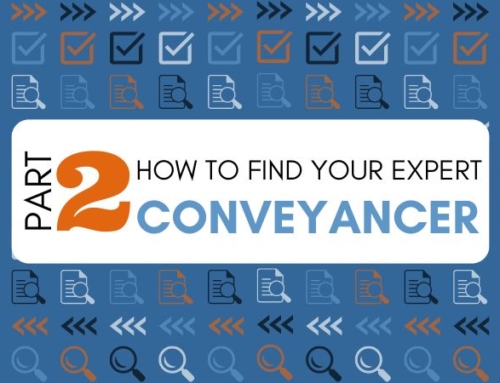As the new COVID-19 strain of Coronavirus is spreading in the UK there is no shortage of articles in the media predicting the end of civilisation as we know it. In this guidance we cut through the noise and give employers some practical advice on minimising the impact of coronavirus in their workplaces.
Coronavirus and the Workplace
One thing for certain is that businesses are in it for the long haul. Experts advise that widespread infections like COVID-19 take roughly three months to build to their peak and another three months to subside afterwards. This means that most businesses will see an impact, even if only indirectly via their customers or suppliers.
To survive and continue to thrive there are some key steps for employers to take, which are:
- Planning for the worst
- Promoting good hygiene practice
- Keeping your staff and customers informed
- Managing sickness absence and sick pay
Step 1 – Planning for the worst
It’s unlikely that businesses will need to shut down completely, but we are recommending that management review their Business Continuity Plans (often called Disaster Recovery Plans) just in case. Now is the time to ask how the business would cope if nobody could come to work?
This is obviously much harder for some types of business than others. For manufacturing or other businesses relying on people handling physical goods it may be impossible to relocate. In this case the plan should address who how the business keeps going with reduced numbers of essential staff and who can work from home. For service businesses it may be possible for nearly everyone to work from home, with some exceptions such as customer facing staff.
Questions that a good Business Recovery Plan should address are:
- Does everyone know what to do in an emergency?
- Do we have up to date contact details and emergency contact details for everyone?
- Do we need a second site ready for staff to divert to?
- Can we access critical IT systems remotely – for example email, CRM systems with customer details and important files on company networks?
- Can we use our telephones to keep in touch with customers, colleagues and suppliers?
Cloud based systems can help with many of these issues, but they aren’t suitable for all businesses. A good IT provider will be able to help answer these questions.
Step 2 – Promoting Good Hygiene in the Workplace
Preventative measures are the key here, as there’s little that can be done once an employee is ill. Good practice for most employers will involve:
- Providing clean places with hot water and soap to wash hands and encouraging staff to wash hands regularly for at least 20 seconds
- Providing hand sanitiser and tissues for staff where necessary and face masks for particularly sensitive jobs such as medical professionals
- Training managers and staff how to spot the symptoms of coronavirus:
- Coughing
- Difficulty breathing
- Fever
- Providing guidance to managers and staff on what to do if they spot or develop symptoms at work, including procedures and facilities for self-isolation if necessary. If a member of staff becomes unwell and has potentially been exposed to coronavirus they should:
- keep 2 metres away from other people
- avoid touching anything
- cough or sneeze into a tissue which should be placed in the bin afterwards
- self-isolate in a room or office with a closed door and call 111 from their own mobile phone, or 999 if the symptoms are serious. We recommend that employers designate a room or office in advance that an employee can shut themselves into
- Reviewing procedures for external meetings, conferences, exhibitions, networking, training courses and the like. Several large international events have already been cancelled and businesses may choose to follow this lead and ban or restrict business travel, particularly overseas
- Considering whether meetings have to be face to face or whether they can be replaced with teleconferencing or telephone meetings
- Considering whether shaking hands with clients and other peers should be discouraged. If handshaking is necessary, promote handwashing immediately afterwards
Step 3 – Keeping Staff and Customers Informed
As COVID -19 spreads we will see Government and public health advice change. The key here is to keep staff, clients and other interested parties up to date with any specific measures you are taking.
Making sure contact details are up to date will mean employers can get messages out to their teams where drastic action such as closing down or asking staff to work from home is necessary.
Clients and suppliers will also need to know if offices are being closed, and expectations will need to be carefully managed to avoid damaging working relationships. There may well be legal implications if you can’t meet your obligations under contracts to customers and these will need to be assessed on a case by case basis.
Step 4 – Managing Sickness Absence and Sick Pay
As a general rule your usual sick leave and pay rules still apply. Government has however passed some emergency legislation which modifies the normal rules for Statutory Sick Pay (SSP).
Here we look at six potential scenarios that you might face:
Scenario 1 – An employee is off sick with coronavirus
They should notify you in the same way as any other illness and stay at home to recover. If your policy is to pay SSP then assuming they earn more than £118/week there would normally be a 3-day period of no pay after which SSP starts. HOWEVER, on 4 March 2020 the Government announced emergency legislation so that SSP will now be payable from day 1 of any sickness. This applies to all types of sick leave and not just COVID-19.
No measures have been put in place for those who earn less than £118/week, although if an employee has been advised to self-isolate, you may consider paying some amount to discourage that employer from attending work when there is a risk of spreading any sickness.
SSP is paid at the rate of £94.25/week, rising to £95.85/week from 5 April 2020. If you pay enhanced rates of sick pay then your normal rules will apply, subject to payment from day 1 onwards.
Scenario 2 – An employee is not sick but has been advised to self-isolate
If an employee is advised to self-isolate (usually for 14 days) by a doctor or NHS 111 then they should stay at home and notify you as soon as possible. If they are able to work remotely, then they should do so and should receive normal pay. If they aren’t able to work, then you will need to make a decision about whether to pay sick pay.
Technically they are only entitled to sick pay if they receive the medical advice in writing (usually as a “fit note”). The Health Secretary has suggested that verbal advice is enough but strictly speaking this is not correct. In practice you may choose to be flexible and pay sick pay, but this is up to you. Consistency of treatment will be key if you exercise discretion with regard to sick pay – try to avoid treating different staff in different ways as you may leave your business open to claims of discrimination.
Scenario 3 – An employee is not sick but needs time off work to look after a dependant
Employees (not workers or the self-employed) are entitled by law to “reasonable” time off to look after someone who depends on them. This includes their spouse or partner, children, parents, people who live with them and others who rely on them such as elderly relatives.
This is relevant because if COVID-19 takes hold as predicted, we can expect to see widespread school closures, putting pressure on working parents. We can also expect to see requests for time off to look after sick relatives.
Time off to look after a dependant is usually unpaid unless the employment contract states otherwise. Expect to see requests for a “reasonable” day or two of dependant leave, followed by holiday leave or unpaid parental leave if the situation lasts longer than this.
Scenario 4 – An employee is afraid of catching coronavirus and doesn’t want to come to work
You may have employees who are sufficiently frightened by the risks of infection that they don’t want to come to work. This may be because of genuine fears regarding an underlying medical condition or they may just be generally afraid.
If the concerns are genuine then you should try and accommodate them as far as possible, as you have a responsibility to protect their health and safety. For example, it may be possible to offer flexible working. If this isn’t possible, other options would be for them to take holiday or unpaid leave.
If you consider that the concerns are not genuine and you don’t wish to allow holiday or unpaid leave then you can insist that the employee attends work. If they do not, then you have the option of disciplinary action.
Scenario 5 – You ask an individual employee not to come to work / You have to close your whole workplace down
If an employee is not sick, but you ask them not to come to work, then they are entitled to their normal pay. You might do this if you are concerned that they might have been infected, perhaps after travelling to an infected area or through contact with an ill family member.
In the unlikely event that you have to close down the whole workplace, then unless your employment contracts say otherwise, you will have to pay your employees their normal pay. In some industries there are agreements covering layoffs but this will not apply to most businesses.
Scenario 6 – An employee with coronavirus wishes to come to work
While COVID-19 can be fatal to high risk groups, for the vast majority of people the symptoms are similar to a mild flu – coughing, breathing difficulties and a fever. It is unlikely, but possible, that an employee may still wish to come to work in this state, perhaps because of financial concerns.
Government advice is that those who are ill should not attend work, so under these circumstances we recommend you insist your employee take sick leave to minimise the risk to their colleagues and others. They will then be entitled to sick pay as in Scenario 1 above.
For further advice about coronavirus at work
If you have questions about any of the advice above or need a help with a specific situation in your workplace then our expert employment law team are here to help. Contact us today to book a free initial consultation with one of our employment solicitors – we are here to help.
Backhouse Solicitors
Tel: 01245 893400
Email: info@backhouse-solicitors.co.uk
Visit: 17 Duke Street, Chelmsford CM1 1JU (just 2 minute walk from Chelmsford train station)
Alternatively Contact Us via the website.






